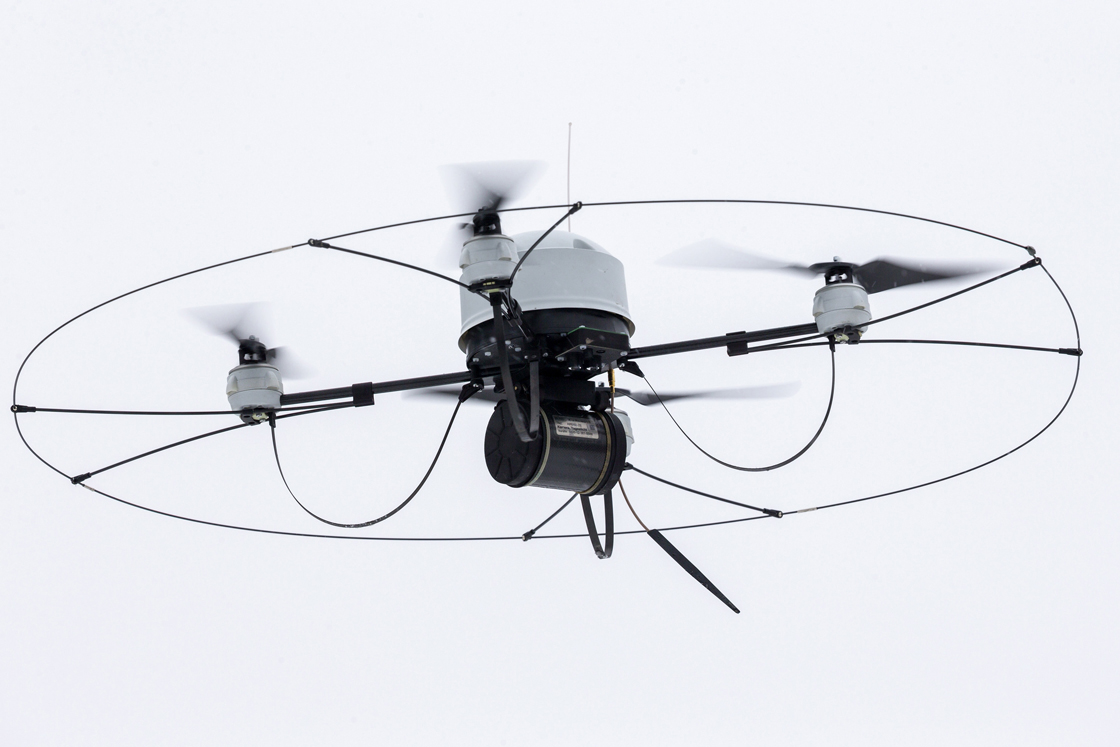WASHINGTON – It’s a good bet that in the not-so-distant future, aerial drones will be part of everyday life in the U.S.

Far from the killing machines whose missiles incinerate terrorists overseas, these generally small, unmanned aircraft will help police departments find missing people. Real estate agents will use them to film videos of properties and surrounding neighbourhoods. Oil companies will use them to monitor pipelines.
With military budgets shrinking, drone makers have been counting on the civilian market to spur the industry’s growth.
But the industry worries that it will be grounded because of public fear that the technology will be misused.
Some companies say the uncertainty has caused them to put U.S. expansion plans on hold, and they are looking overseas for new markets.
“Our lack of success in educating the public about unmanned aircraft is coming back to bite us,” said Robert Fitzgerald, CEO of The BOSH Group, which provides support services to drone users.
“The U.S. has been at the lead of this technology a long time,” he said. “If our government holds back this technology, there’s the freedom to move elsewhere … and all of a sudden, these things will be flying everywhere else and competing with us.”
Since January, drone-related legislation has been introduced in more than 30 states, largely in response to privacy concerns. Many bills are focused on preventing police from using drones for broad public surveillance.
In Virginia, for example, the state General Assembly passed a bill that would place a two-year moratorium on the use of drones by state and local law enforcement. The bill must still be signed by the governor. The measure is supported by groups as varied as the American Civil Liberties Union on the left and the Virginia Tea Party Patriots Federation on the right.
Gov. Bob McDonnell is proposing amendments that would retain the broad ban on spy drones but allow specific exemptions when lives are in danger, such as for search-and rescue operations. The legislature reconvenes on April 3 to consider the amendments.
Drones “clearly have so much potential for saving lives, and it’s a darn shame we’re having to go through this right now,” said Stephen Ingley, executive director of the Airborne Law Enforcement Association. “It’s frustrating.”
Sen. Rand Paul, a Republican, recently drew attention to the domestic use of drones when he spoke for about 13 hours straight in the chamber, demanding to know whether the president has authority to use weaponized drones to kill Americans on U.S. soil. The White House said no, if the person isn’t engaged in combat.
For now, civilian drone use is limited to government agencies and public universities that have received a few hundred permits from the FAA. A law passed by Congress last year requires the FAA to open U.S. skies to widespread drone flights by 2015, but the agency is behind schedule, and it’s doubtful it will meet that deadline.
The FAA estimates that within five years of gaining broader access, about 7,500 civilian drones will be in use.
In some states, economic concerns have trumped public unease.
A bill that would have limited the ability of state and local governments to use drones died in the Washington state legislature. The measure was opposed by The Boeing Co., which employs more than 80,000 workers in the state and which has a subsidiary, Insitu, that’s a leading military drone manufacturer.
In Congress, Rep. Ed Markey has introduced a bill that prohibits the Federal Aviation Administration from issuing drone licenses unless the applicant provides a statement explaining who will operate the drone, where it will be flown, what kind of data will be collected, how the data will be used, whether the information will be sold to third parties and the period for which the information will be retained.
Sentiment for curbing domestic drone use has brought the left and right together perhaps more than any other recent issue.
“The thought of government drones buzzing overhead and constantly monitoring the activities of law-abiding citizens runs contrary to the notion of what it means to live in a free society,” Sen. Charles Grassley, a Republican, said at a recent hearing of the Senate Judiciary Committee.
Privacy advocates acknowledge the many good uses of drones. But drones’ virtues can also make them dangerous, they say. Their low cost and ease of use may encourage police and others to conduct the kind of continuous or intrusive surveillance that might otherwise be impractical. Drones can be equipped with high-powered cameras and listening devices, and infrared cameras that can see people in the dark.
“High-rise buildings, security fences or even the walls of a building are not barriers to increasingly common drone technology,” Amie Stepanovich, director of the Electronic Privacy Information Council’s surveillance project, told the Senate panel.
Associated Press writer Joan Lowy contributed.



Comments